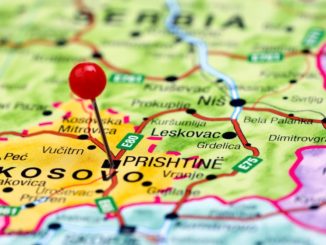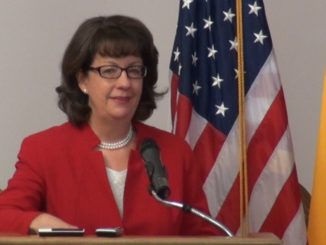
By Tim Judah
You could not make half of it up. As the Ukraine crisis has developed, and with annexation of Crimea by Russia, it was inevitable that Kosovo and the Balkans would get dragged in to the arguments.
But some of the wacky things being said, notably by President Barack Obama, and the way in which Serbia’s leaders have tried to sit on the fence as far as Crimea is concerned, would have seemed unbelievable if they had been written into a comedy.
The serious part of the issue is this: On March 18th Russian President Vladimir Putin cited Kosovo’s 2008 independence from Serbia as a precedent for Crimea having a referendum and declaring independence from Ukraine.
On March 26th President Obama scoffed at this. In a speech in Brussels he said: “Kosovo only left Serbia after a referendum was organized not outside the boundaries of international law, but in careful cooperation with the United Nations and with Kosovo’s neighbors. None of that even came close to happening in Crimea.”
While this sounded excellent, the problem, as the Russian media crowed, and a baffled Balkan media tried to figure out, was that none of that even came close to happening in Kosovo.
There was no referendum in the run up to its independence. Even stranger, the speech is still there on the White House website, without a correction. A query about this to the White House press office resulted in answers to questions not asked and did not address the issue of the mistake.
Back in the Balkans the Serbian leadership has found itself embarrassed by Russia’s invasion of Crimea. Russia and Ukraine have both supported Serbia’s view that Kosovo’s declaration of independence in 2008 was illegal and trampled over Serbia’s territorial integrity.
But, Serbia’s current leaders often declare their love of Russia, sometimes literally, though they are also working hard on their European Union membership bid, their military is supported by the US and the country runs on Russian gas and oil. So, keeping everyone happy here was always going to be a non-starter.
Luckily for Serbia’s leaders, in the wake of its election on March 16th, it still has no new government so this has been used as an excuse for not having a formal position. At the March 27th United Nation’s General Assembly vote reaffirming the territorial integrity of Ukraine Serbia simply failed to show up (it did not abstain, it literally did not turn up,) and thus found itself in the oddest international group of all, in the company of Israel, Iran and Equatorial Guinea, though the Bosnians were there to keep the Serbs company..
Ukraine of course was outraged and its embassy complained, but in the meantime Serbs had already been distracted by something far more serious as far as they were concerned.
A video of Arseniy Yatseniuk, the new Ukrainian prime minister, had begun doing the Balkan social media rounds. Originally posted on YouTube last September Mr Yatseniuk explains the merits of EU membership. He is standing in front of a map or Europe, in which Yugoslavia, which vanished in 1991 has not only been reconstituted, but all of it renamed “Croatia”.
If the Serbian foreign ministry could not vote at the UN in defence of Ukraine’s territorial integrity, it certainly could complain to the Ukrainians about this idiotic mistake.
In Belgrade, Sarajevo and Podgorica, Ukrainian embassies were forced into making humiliating apologies, which helped distract attention from the fact that Serbia was trying to do the diplomatic equivalent of playing Twister.
In the end all this was not surprising though. During the war years the current Serbian leadership argued that Croatia and Bosnia did not have a right to territorial integrity but that Serbs there had the right to self-determination.
When it came to Kosovo they made a 180-degree turn and argued that Serbia had the right to preserve its territorial integrity and that its majority Albanians did not have the right to self-determination. Now, says Aleksandar Vucic, Serbia’s soon to be anointed prime minister, his country must have a “balanced” policy.
According to Mr Vucic, Serbia respects the territorial integrity of every country in the world but it will not follow the lead of the EU and introduce sanctions on Russia imposed by countries who in the past “bombarded Serbia and jeopardized her territorial integrity.” As an EU candidate Serbia is supposed to align its foreign policy with that of the EU. However Serbia gets almost all its gas from Russia and at least one Serbian paper has reported that if Serbia follows the EU lead, Russia will demand immediate repayment of the country’s large debt for gas. In the meantime it has been announced that the Russian authorities will finance the erection of a statue of its last tsar, Nicholas ll, in Belgrade.( BIRN)



